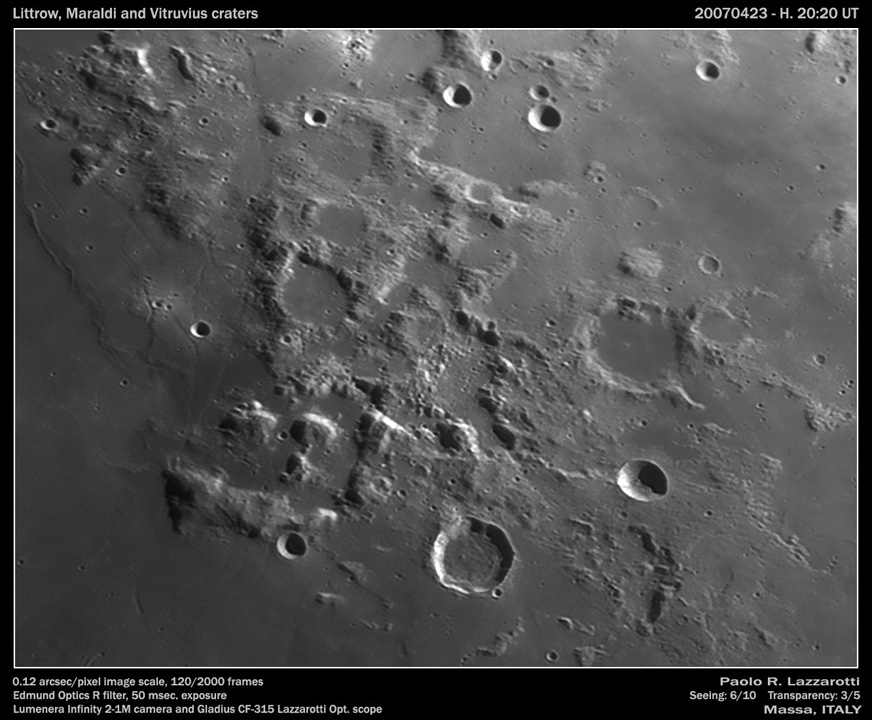
image by Paolo R. Lazzarotti, Massa, Italy.
Once again Paolo’s unique telescope and camera have captured an excellent view of complex region of the Moon. Here are a few observations of things I hadn’t noticed so well before. Four large bright mountains - including South Massif and Mt. Vitruvius - form a line that continues via low scarps to the sharp, 18 km wide crater Gardner. Is this a chance alignment, or does that fact that it is roughly radial to the middle of Serenitatis signal that it is some sort of tectonic adjust to the basin’s formation? Just below the hilly alignment is the broad and flat-floored crater Vitruvius. The floor seems to be filled in with some slightly hummocky material and a crater chain or rille heads northward. The floor is dark in the center, containing a pyroclastic deposit. Near the right center the crater Maraldi has a floor that is dark because of a relatively recent lava flow emplacement. Only a pip of its central peak remains. And finally, just north is Mt. Maraldi, a round-shaped, flat hill that looks like an extrusive dome, but spectrally presents no evidence for such an origin.
Technical Details:
23 April 2007, 20:20 UT. Gladius CF-315 Lazzarotti telescope (f/25), Lumenera Infinity 2-1M camera, Edmund Optics R filter, 120 frames stack out of 2000.
Related Links:
Rükl plate 25
Paolo’s website
The amazing telescope that creates these images
Yesterday's LPOD: Residual Ridges
Tomorrow's LPOD: Almost Right
COMMENTS?
Register, Log in, and join in the comments.



